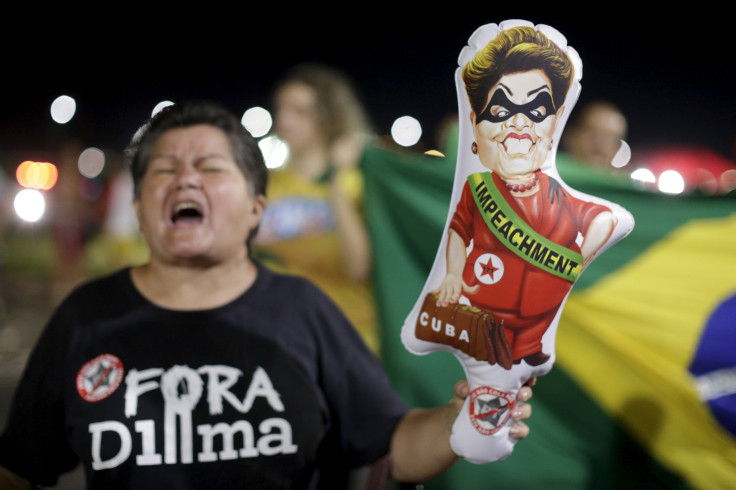
Brazilian President Dilma Rousseff could enter prolonged impeachment proceedings after Speaker of the House Eduardo Cunha agreed to open proceedings on Wednesday. The impeachment request alleges that Rousseff’s government violated campaign laws before and after last year’s election. It does not name Rousseff as a conspirator in the Lava Jato, a graft scandal that has plagued Brazilian politics for the past year, plunging the country into a political crisis outmatched only by its economic one. Rousseff rejected both the allegations against her and the impeachment proposal.
“My present and my past vouch for my honesty and my unquestionable commitment to the law,” Ms. Rousseff said in a televised address (WSJ translation). “We can’t permit indefensible interests to unsettle our country’s democracy.”
Professions of innocence like Rousseff’s have become ubiquitous in the upper-echelons of Brazilian politics, but the scandal-plagued President does have one thing going for her: zero evidence has been presented that directly implicates her in wrongdoing, or suggests that she personally benefited from bribes.
Rousseff’s ruling party, the PT, have vowed to fight the impeachment proceedings from even starting. The impeachment announcement comes amidst an ongoing and wide-reaching bribery scandal related to government contracting of Brazilian state oil company Petrobras. That graft scandal has implicated dozens of top legislators, including Cunha himself, and put many politicos behind bars.
Rousseff, who was the CEO of Petrobras during the most understood period of bribery, has denied any knowledge of the graft scandal. Allegations against Cunha have been more specific; there’s evidence that suggest that he controlled a Swiss bank account and personally received some $5 million in bribes. He has denied the charges.
As The Guardian points out, Cunha himself said months ago that impeachment would be “backwards step for democracy.” He said wednesday that he moved forward on the indictment reluctantly, and was responding to popular pressure.
“The demonstrations that took place throughout Brazil – on March 15, April 12 and August 16 – were not in vain!” he wrote on his Facebook page (Guardian translation). “The [impeachment] process will be followed by the entire population.”
With many lawmakers backed into their own personal corners on bribery charges and a deeply unpopular president, little has been done to right Brazil’s nosediving economy. A recent economic report showed the worst annual drop in GDP on record, marking the deepest recession in the last quarter century.
© 2025 Latin Times. All rights reserved. Do not reproduce without permission.




